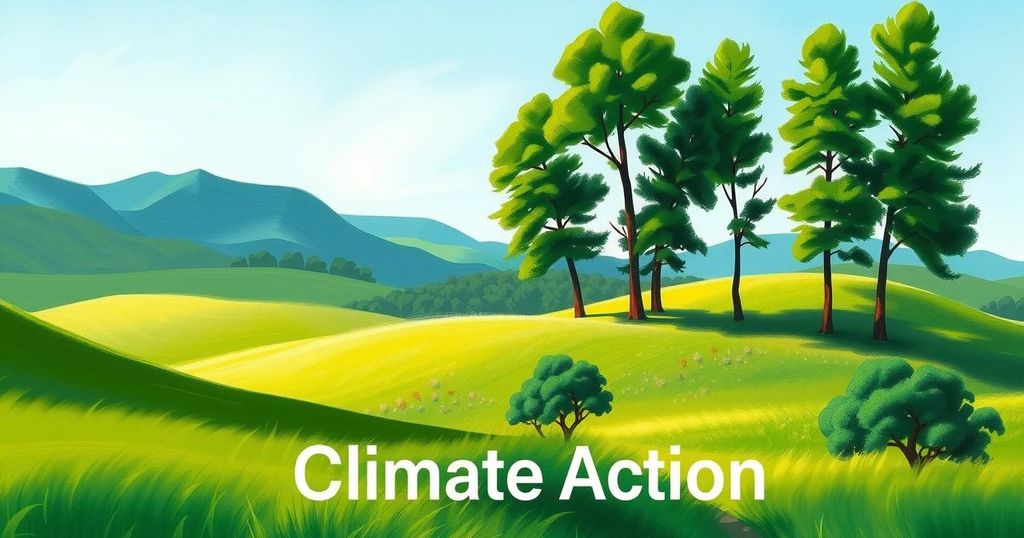Faith-Based Advocacy Essential for Climate Action in Nigeria
Experts and religious leaders gathered at the Interfaith Dialogue on Climate Change Summit in Abuja, urging collaborative climate action in Nigeria. The summit highlighted the launch of a report and policy brief advocating for faith-driven climate initiatives. Participants stressed the need for immediate action and improved policies to combat the adverse effects of climate change and environmental degradation.
Experts in climate issues and religious leaders from Christian and Islamic faiths convened to advocate for more effective climate policies during the Interfaith Dialogue on Climate Change Summit, organized by Connected Development (CODE) in Abuja. They emphasized the importance of collaboration to address environmental challenges and protect future generations. The summit also launched the inaugural Interfaith Dialogue on Climate Change Report & Policy Brief, which outlines strategic messages and policy recommendations for faith-driven climate activism.
The summit aimed to empower faith and community leaders in advocating for climate justice, utilizing faith communities’ influence to communicate essential climate issues. CODE highlighted the release of the Interfaith Dialogue report along with its Policy Brief, detailing strategic messaging under the BERIC model and underscoring the link between faith and environmental responsibility.
Climate change poses significant challenges to Nigeria, where extreme weather events have adversely affected agricultural outputs and farmer livelihoods. In 2024, floods significantly impacted food production, resulting in fatalities, extensive property damage, and widespread displacement. Nigeria’s disaster management agency, NEMA, reported substantial loss and suffering due to these environmental crises, emphasizing the urgent need for infrastructure improvements to mitigate flood impacts.
Hamzat Lawal, CEO of Connected Development, highlighted the critical role of faith-based advocacy in combatting climate change, urging citizens to demand justice and funding to address Nigeria’s environmental crises. George Ehusani, Executive Director of Lux Terra Leadership Foundation, called for a radical shift in environmental policies, expressing concern over the pervasive pollution and inadequate waste management.
Ehusani stressed the necessity for collective pressure on decision-makers to take climate change seriously, warning against complacency amidst worsening environmental degradation. Muhammad Nurudeen, Executive Director of Da’awah Institute, echoed the sentiment, stressing that while faith inspires action, poor governance and misinformation hinder progress. He urged religious leaders to take their responsibilities seriously and work towards educating communities and fostering interfaith climate initiatives.
Nurudeen further emphasized that faith serves as a moral compass for climate action, stating that environmental stewardship is a shared duty for all. He called for immediate action to address climate issues, cautioning against the dangers of misinformation and ethnic divisions that distract from environmental challenges.
In conclusion, the Interfaith Dialogue on Climate Change Summit underscores the crucial intersection of faith and environmental advocacy in Nigeria. Experts and religious figures have advocated for collaborative efforts to tackle climate issues and promote sustainable practices. The call for justice and policy intervention highlights the urgent need for a united front in addressing the pressing impacts of climate change, ensuring a healthier and more sustainable environment for future generations.
Original Source: www.premiumtimesng.com




Post Comment